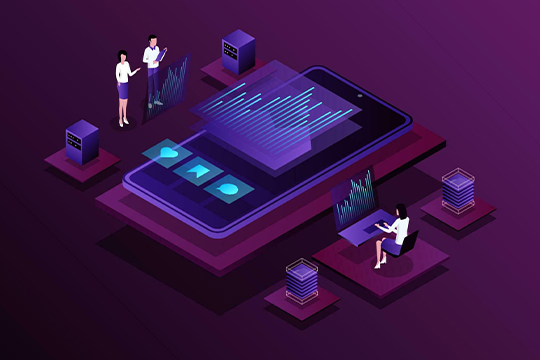What Is the Cost of Developing a Mobile App in 2026?
As a technology consultant, one of the most frequent questions I get from business owners and startup founders isn't "What's…
Mobile app development and data science are two distinct fields that involve different skills and technologies. Mobile app development involves designing, creating, and maintaining applications for mobile devices such as smartphones and tablets. It requires knowledge of programming languages such as Java or Swift, as well as frameworks and libraries for building mobile apps. Mobile app developers also need to be familiar with user experience (UX) design principles and the specific features and capabilities of different mobile platforms.
Data science, on the other hand, involves using statistical and computational techniques to analyze and interpret large datasets in order to extract insights and solve real-world problems. Data scientists use tools such as machine learning algorithms and programming languages like Python and R to analyze data and build predictive models. They also need to be skilled in statistical analysis, visualization, and communication in order to effectively present their findings to stakeholders.
While there may be some overlap between the skills required for mobile app development and data science, these fields generally require different sets of expertise and are focused on different goals.
Data science has revolutionized the way we approach the development and improvement of mobile apps. By collecting and analyzing data about how users interact with apps, developers can make informed decisions about what features to include and how to optimize the user experience. In this blog, we’ll explore several ways that data science is being used in the development of mobile apps.
Overall, data science can help mobile app developers understand their users better and make informed decisions about how to improve and optimize their app. The future of data science in mobile application development is looking bright and promising. With the rapid advancement of technology and the increasing reliance on mobile devices, data science is playing a crucial role in the development of mobile applications.
One of the key trends in the field is the use of artificial intelligence and machine learning in mobile app development. These technologies allow for the creation of personalized and intuitive user experiences, as well as the ability to process large amounts of data in real-time. For example, a mobile application that uses machine learning could analyze a user’s behavior and preferences to suggest personalized content or make recommendations based on their interests.
Another trend in the field is the use of data analytics to improve the performance and functionality of mobile applications. By analyzing user data, developers can identify areas for improvement and optimize their apps to provide a better user experience. This could involve identifying and fixing bugs, improving the app’s load time, or adding new features based on user feedback.
Cloud computing is also playing a significant role in the future of data science in mobile app development. With the increasing amount of data being generated, it is becoming increasingly important to store and process this data in the cloud. This allows developers to easily access and analyze large amounts of data, as well as to scale their applications as needed.
In addition to these trends, there is also a growing focus on data privacy and security in the development of mobile applications. With the increasing amount of sensitive personal information being stored on mobile devices, it is essential that developers prioritize the protection of this data. This could involve the implementation of encryption and secure authentication methods, as well as regularly updating the app to address any potential vulnerability.
Overall, the future of data science in mobile app development looks bright and full of opportunities. With the continued advancement of technology and the increasing reliance on mobile devices, data science will play a crucial role in the development of innovative and user-friendly mobile applications.
Overall, data science is a powerful tool for improving the development and performance of mobile apps. By collecting and analyzing data about how users interact with apps, developers can make informed decisions about what features to include and how to optimize the user experience. Whether it’s personalizing the user experience, optimizing app performance, enhancing security, or improving advertising and marketing efforts, data science is an essential part of the modern app development process.

As a technology consultant, one of the most frequent questions I get from business owners and startup founders isn't "What's…

I remember standing by the window of our Kolkata office on a rainy Tuesday in early January 2025. The city…

For years, a strong website was enough. Today? Your customers, your staff, and even your vendors are living their lives…